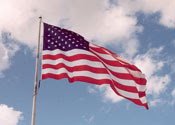 A little less than 10 years ago I received an intriguing gift from a friend for my birthday. It was an e-book, one of the first designed precisely for that purpose. It was called the Rocket E-Book, and I became curious and decided to try it out. The basic process was to go online, purchase an e-book, download it on your computer and then transfer it to the e-book reader. With one exception this has been the process all along till today. The exception is the current Kindle reader from Amazon which downloads directly using a wireless telephone network to the reader from the Amazon website.
A little less than 10 years ago I received an intriguing gift from a friend for my birthday. It was an e-book, one of the first designed precisely for that purpose. It was called the Rocket E-Book, and I became curious and decided to try it out. The basic process was to go online, purchase an e-book, download it on your computer and then transfer it to the e-book reader. With one exception this has been the process all along till today. The exception is the current Kindle reader from Amazon which downloads directly using a wireless telephone network to the reader from the Amazon website.My friend knew that I had always enjoyed reading a wide variety of books and thought this might be a nice innovation for me. It was! Over these past years I have read a number of e-books on different e-readers as the technology and the companies seemed to change regularly. After the Rocket e-book went out of business, I switched to a Palm which worked well for several years, and then my Palm broke, and I moved to a Blackberry format which was unfortunately smaller. Eventually the books that I bought for my Palm became readable on my Blackberry and that was very good as I had a collection of books that I had not read. I have tended to buy a number of works from a given author whose works I admired, as it was easier to buy several books at the same time.
We have a number of bookshelves at home full of books that I've read over the years. Unfortunately I've never been a library person who doesn't have to worry about how much bookshelf space is available, and therefore we have always had to purchase new bookshelves over the years. I know that the e-books I have read (perhaps 100 or so) have saved me a fair amount of bookshelf space.
People have always asked me: how can I read a book on a small e-book reader. My answer is always the same: once you start reading and get involved in the story or the narrative, you tend to forget which medium you're using. It's like watching a movie on a small black-and-white television or a large movie house screen with all the color and sound. If the story is worth following you get immersed in the story and forget the medium. Of course I still buy hardcover and paperback books, and I treasure these as much as I always have.
In the public media there is a large debate today about the onslaught of new e-book readers (Sony has one, Barnes & Noble is bringing out one, Amazon is bringing out its fourth one, etc.). During this past year I bought the second generation Kindle from Amazon and have enjoyed it immensely. If you're in the United States (and now most of the rest of the world with its international version introduced a few weeks ago) you can use it as a browser, but this part is still very awkward. On the other hand its built-in dictionary is fabulous both with respect to the depth and ease of use. If you use the cursor to scroll down the page each time it stops on a given word you see at the bottom the beginning of a definition of that word at the bottom of the page, and with one click you can have the full definition with etymology etc. on your full screen. One more click and you're back in your book. I hope this evolves to have more language dictionaries which have the same capability, but they are not up to snuff on this yet (for instance they don't have a good French English dictionary for the Kindle yet).
A final note: I've always been an airport reader, and have always had to take an extra book or two along on trips in case of the likely or unlikely event that I would finish one book on a given trip (what a disaster that might be!). The e-book reader is easy to carry along and it has a number of books on it, so that this "disaster" just doesn't happen, provided you remember to charge it!

 Having married into a Bremen family in Germany some time ago, I have become accustomed to and have had to learn about many German customs which are quite different from the Texas world I grew up in as a teenager. Today I would like to give a few samples of these customs. In the future I might try to find examples of cultural issues from Texas that might surprise my German friends, but one things at a time right now!
Having married into a Bremen family in Germany some time ago, I have become accustomed to and have had to learn about many German customs which are quite different from the Texas world I grew up in as a teenager. Today I would like to give a few samples of these customs. In the future I might try to find examples of cultural issues from Texas that might surprise my German friends, but one things at a time right now!





